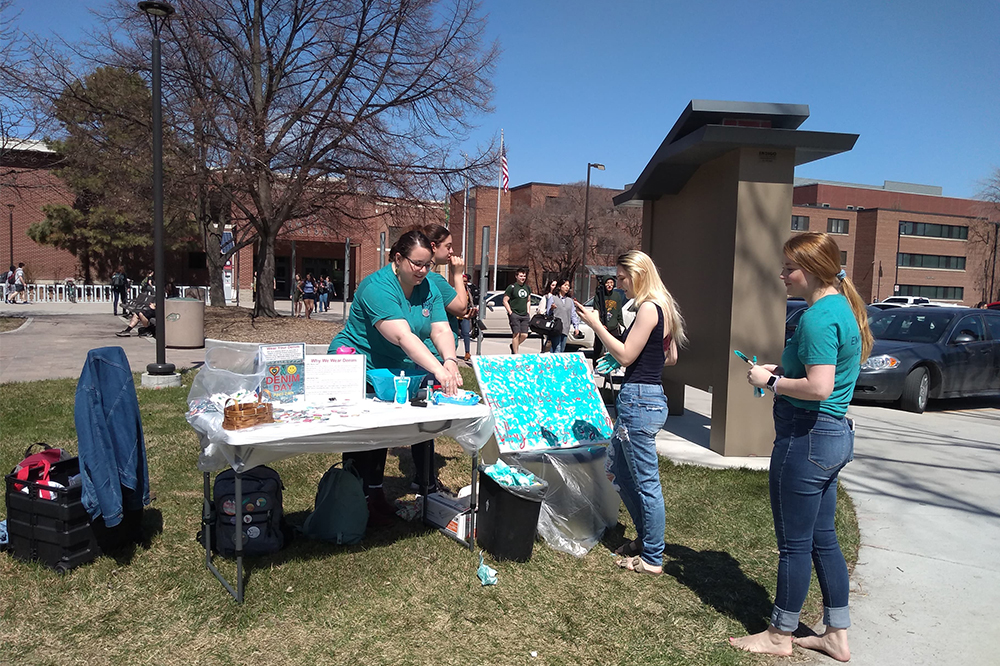NDSU Health organizes their International Denim Day with an interactive display

Around 120 students participated in the show of support.
Denim Day is an annual event that focuses on victim blaming and the problem of sexual assault. On April 24, North Dakota State marked the day with an interactive display.
According to Megan Talcott, the sexual assault prevention advocacy coordinator at the NDSU Student Health Service, the event has its roots in Italy where a famous case involving an alleged sexual assault occurred.
According to DenimDayInfo.org, “A rape conviction was overturned because the justices felt that since the victim was wearing tight jeans, she must have helped her rapist remove her jeans, thereby implying consent.”
“So because of that decision and the victim blaming nature of that statement … all of the women of the Italian parliament wore jeans to work in protest,” Talcott said.
Talcott works with Violence Prevention Educators like Jenna Bieber, who organized the installation on campus.
A lot more people are assaulted than we really know.”
Jenna Bieber, Violence Prevention Educator
“I had a blank canvas, and then I painted in red three quotes … ‘What were you wearing?’ ‘How drunk were you?’ and ‘Why didn’t you say no?’” Bieber said. “Which are typically three quotes that victims will hear when they disclose when they’ve experienced some sort of sexual violence.”
These quotes can make people feel ashamed or as though the violence was their fault, leading to survivors potentially not reporting to police, according to Bieber.
Bieber said she then asked students to paint their hands teal, the color of sexual assault awareness.
“I just had them cover up the quotes with their hands to show that, like, you might not think that your one voice doesn’t have a lot of impact, but together everyone’s voice does,” Bieber said.
Bieber then wrote over the collective piece in black paint “NDSU Supports Survivors.”
According to Bieber, the group tried to tally the contributors and got a rough estimate of 120 hands. She said some of those hands were those of survivors of sexual assault.
“A couple survivors stopped by and said that they were happy we were making awareness on campus,” Bieber said.
Although Talcott said she didn’t have any specific numbers for NDSU, according to her, the problem is real on all campuses and in society at large.
“We know sexual assault is a problem everywhere,” Talcott said. “It doesn’t exclude (based on) race or gender, or religious background.”
According to Bieber, the exact numbers for sexual assaults are lurking under the public’s radar. “A lot more people are assaulted than we really know, and I think that there are a lot of people who don’t outwardly speak out about the violence they’ve experienced,” Bieber said.
Bieber said by seeing events on campus survivors feel less alone and supported by everyone.
